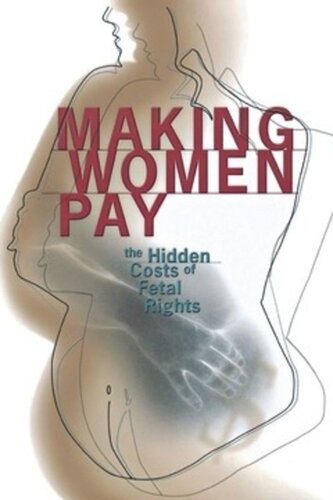

Most ebook files are in PDF format, so you can easily read them using various software such as Foxit Reader or directly on the Google Chrome browser.
Some ebook files are released by publishers in other formats such as .awz, .mobi, .epub, .fb2, etc. You may need to install specific software to read these formats on mobile/PC, such as Calibre.
Please read the tutorial at this link: https://ebookbell.com/faq
We offer FREE conversion to the popular formats you request; however, this may take some time. Therefore, right after payment, please email us, and we will try to provide the service as quickly as possible.
For some exceptional file formats or broken links (if any), please refrain from opening any disputes. Instead, email us first, and we will try to assist within a maximum of 6 hours.
EbookBell Team

4.7
16 reviewsOnce backed primarily by anti-abortion activists, fetal rights claims are now promoted by a wide range of interest groups in American society. Government and corporate policies to define and enforce fetal rights have become commonplace. These developments affect all women—pregnant or not—because women are considered "potentially pregnant" for much of their lives. In her powerful and important book, Rachel Roth brings a new perspective to the debate over fetal rights. She clearly delineates the threat to women's equality posed by the new concept of "maternal-fetal conflict," an idea central to the fetal rights movement in which women and fetuses are seen as having interests that are diametrically opposed. Roth begins by placing fetal rights politics in historical and comparative context and by tracing the emergence of the notion of fetal rights. Against a backdrop of gripping stories about actual women, she reviews the difficulties fetal rights claims create for women in the areas of employment, health care, and drug and alcohol regulation. She looks at court cases and state legislation over a period of two decades beginning in 1973, the year of the Roe v. Wade decision legalizing abortion. Her exhaustive research shows how judicial decisions and public policies that grant fetuses rights tend to displace women as claimants, as recipients of needed services, and ultimately as citizens. When a corporation, medical authority, or the state asserts or accepts rights claims on behalf of a fetus, the usual justification involves improving the chance of a healthy birth. This strategy, Roth persuasively argues, is not necessary to achieve the goal of a healthy birth, is often counterproductive to it, and always undermines women's equal standing.